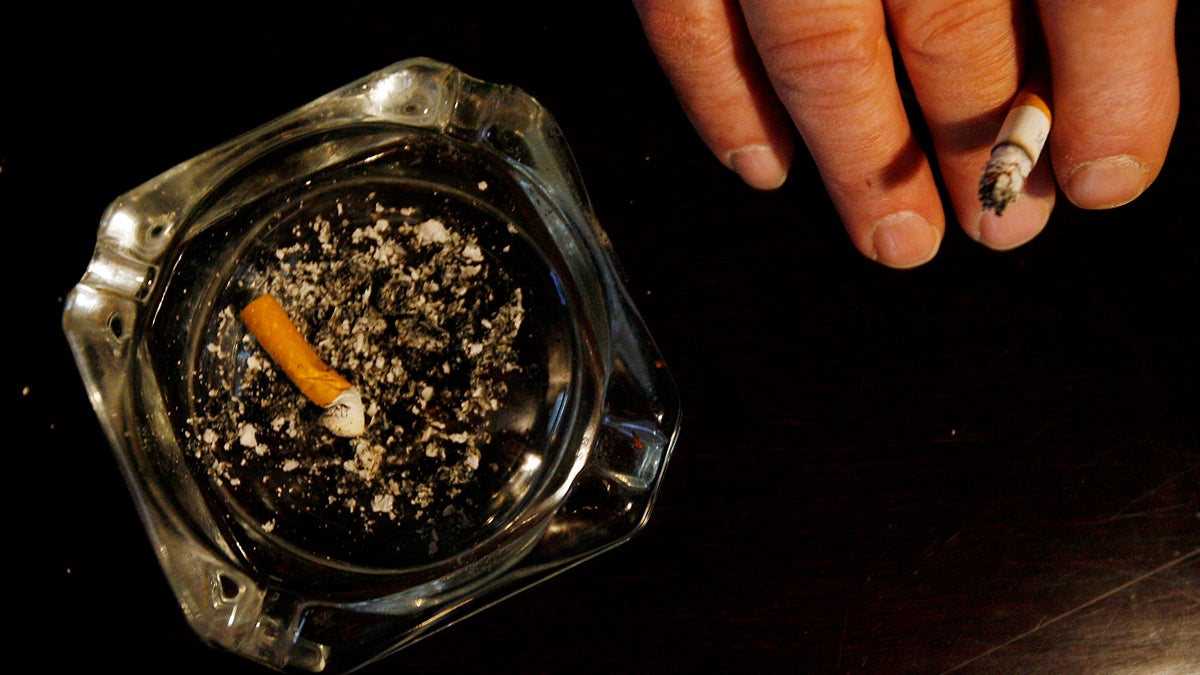Pa. fights to regain $180 million in tobacco money, including funds for bioresearch

(Isaac Brekken/AP Photo, file)
With approximately $180 million at stake, a hearing that begins Friday may be one of the most important legal proceedings in Pennsylvania this year.
For more than a decade, Pennsylvania has received about $300 million each year from the nation’s largest tobacco companies as part of its Master Settlement Agreement to reimburse the state for the added health care costs of smoking.
But in September, a panel of former federal judges ruled that Pennsylvania had not done its part to protect the participating companies from losing market share in 2003, and lowered the expected payment by about 60 percent.
Finding Pennsylvania not diligent in its duties to keep the playing field even for the industry, the arbitration judges pointed to a low tax collection rate of around 40 percent as well as a failure to file enough lawsuits and to include “roll-your-own products” in its efforts.
The state appealed the decision at the end of last year.
“We believe the arbitration panel got it wrong in that, for whatever reason, they seem to be focused on the pure number of suits that were filed that year, as opposed to the approach we took, which was to go after non-participating manufacturers that had the highest market percentage of non-participating manufacturers in the state,” said Adrian King, first deputy attorney general.
King noted that Ohio had similar rates of enforcement compliance as Pennsylvania, yet it was found diligent.
With approximately $180 million at stake to put toward various health programs, including insurance for low-income patients, smoking cessation, and biomedical research, King said he expects the case to be one of the most important legal proceedings in the state this year.
The Wistar Institute, for example, was slated to receive $1.4 million in April, out of the $40 million originally set aside for biomedical research, also known as the Commonwealth Universal Research Enhancement, or CURE, program. But following the arbitration ruling, the state froze funding.
Louise Showe, one of the scientists at the Wistar Institute who has benefited from tobacco money, has been working to develop a simple blood test for heavy smokers to diagnose lung cancer — without having to undergo invasive procedures.
“For me, everything that has happened in association with these funds has been quite positive scientifically,” Showe said. “And I think it’s been in particular good for bringing new young people into the research.”
Elizabeth O’Brien, vice president for legal and external affairs at Wistar, said the institute is prepared to take on a deficit in 2014 to make sure vital research projects continue.
“That’s not something that we can sustain over the long haul, and that’s the reason for our tremendous concern about the potential long-term loss of CURE funding,” she said.
A coalition of research institutions from across the state, including Wistar, filed an amicus brief in support of the Commonwealth’s appeal, which has its first hearing Friday morning in Philadelphia’s Court of Common Pleas.
WHYY is your source for fact-based, in-depth journalism and information. As a nonprofit organization, we rely on financial support from readers like you. Please give today.

